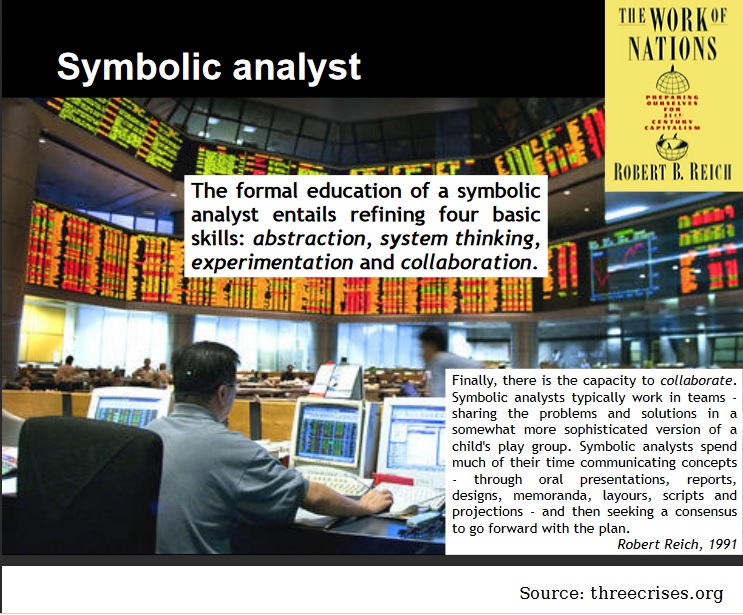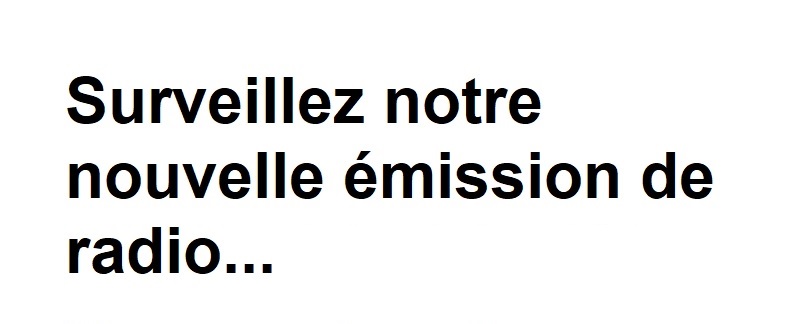Symbol Analyst
Job of the future: Symbolic Analyst

Discover (really) what is a Symbol Analyst
According to NASDQ![]() Stock Market, the American stock exchange, the term means one thing. They even use the term Guru Analyst
Stock Market, the American stock exchange, the term means one thing. They even use the term Guru Analyst![]() fares their decisions based on the theories of Peter Lynch
fares their decisions based on the theories of Peter Lynch![]() , Benjamin Graham
, Benjamin Graham![]() and other stock-picking legends, based on Validea's interpretation
and other stock-picking legends, based on Validea's interpretation![]() .
.
Interesting authors
Please, read at least three of these books, they're all great and full of wisdom.
- The Motley Fool Investment Guide - Small-Cap Growth Investor - Investment Guide

- Benjamin Graham - Value Investor - The intelligent Investor

- Martin Zweig - Growth Investor - 0446670146Winning on Wall Street

- Peter Lynch - P/E/Growth Investor - One Up On Wall Street

- Kenneth Fisher - Price/Sales Investor - Super Stocks

- James P. O'Shaughnessy - Growth/Value Investor - What Works on Wall Street

- Warren Buffett - Patient Investor - Buffettology

- Joseph Piotroski - Book/Market Investor - Value Investing

- John Neff - Low PE Investor - John Neff on Investing

- David Dreman - Contrarian Investor - Contrarian Investment Strategies

See and pick them up here bellow
Here is the list, have a good shopping experience via Amazon.com
What is this new job title we hear about
Tks to Robert B. Reich
... and his book "The Work of Nations "
"
Then, let's think further
What about the definition of an analyst. The symbols that he studies
What is a Symbol Analyst doing on a daily basis
Let's ask Robert B. Reich
Reich is an American political man, professor, and author. He wrote the Works of the Nations![]() in 1992. He served in the administrations of Presidents Gerald Ford and Jimmy Carter and was Secretary of Labor under President Bill Clinton from 1993 to 1997.
in 1992. He served in the administrations of Presidents Gerald Ford and Jimmy Carter and was Secretary of Labor under President Bill Clinton from 1993 to 1997.
Robert B. Reich's thoughts
How do you plan to earn your living? Some skills will be in demand, while others will dissapear!
The essay Robert Reich wrote, perceived as a political economist, changed my way of thinking about job security. He thougt and coined this term (Symbol Analyst) back in 1992 one year before he was appointed Secretary of Labor under President Bill Clinton from 1993 to 1997.
Listen (and watch) to this interview![]() (1992) where he speaks about his ideas on the future of work.
(1992) where he speaks about his ideas on the future of work.
Some of my thoughts are borrowed from this web blog![]() (no guarantee the site is still up and running).
(no guarantee the site is still up and running).
Reich (Robert Reich) was the nation’s 22nd Secretary of Labor and was a professor at the University of California at Berkeley, etc. His book is about “Supercapitalism.”
"Reich uses the term of symbolic analysts to describe what he feels one of the three main job classifications of the future will be." *![]()
A symbolic analyst is
- a problem identifier
- a problem solver, or
- an innovator who can visualize new uses of existing technologies.
Chart showing combinations of new workers
Difficult to define as they engage problem solvint jobs.
Jobs of the future he says are:
| - Communications - | Management - | - Engineers - |
| - Systems - | - Planning - | - Director - |
| - Financial - | - Process - | - Designer - |
| - Creative - | - Development - | - Coordinator - |
| - Project - | - Strategy - | - Consultant - |
| - Business - | - Policy - | - Manager - |
| - Resource - | - Applications - | - Adviser - |
| - Product - | - Research - | - Planner - |
This class of workers includes scientists, engineers, and other scientific or technical specialties as well as marketers, investors, some types of lawyers, developers and a wide variety of consultants. The symbolic analysts will have a high level of education, both in the classroom and on the job experience.*![]()
My take on this, when Reich wrote his thoughts on the global economy subject (remember, we're in the nineties and, per example, Bell Northen Telecom was a Canadian Jewel then), he inspired many people and his thoughts on the future are standing strong. What I may add after reading his book is that the concept of Symbolic Analyst applies to lower levels of workers. No need to have three university diplomas to identify yourself as a symbolic analysty. The same principle and thought on this emerging job title applies to kids, nerds, hackers, drop outs on might say.
Reich believes that this new, actually redefined, class of workers is be the best bet for job growth and success into this century. Opportunities for job growth will remain rather high he said. This is a result of two factors, a slowing growth in population and the future retirement of the baby boomer generation (Reich, 203). It is not the number of jobs in the future that is the problem, its the quality of those jobs. On the whole, Reich identifies two trends in job quality. The number of mundane, manufacturing jobs will decrease as well as the number of in-person service jobs e.g. bank tellers, but growth in the number of symbolic analytical positions. *![]()
Researching in the same space
Chasing Elephants vs Squirels
Remember this if your a CSR
We do not chase Elephants the same way we chase squirels. The tools to get them are the same but not the methodoloy. This idea is the ancestor of what we call today the 'Social' (or Social Media that is).
Refer to what sociologist have discovered in the field of Cognitive Dissonance![]() .
.
We chase Sqirels with the same tools we use to catch elephants except we don't chase them the same way on the field. We use Cognitive Dissonance just like what Linkenin.com does with its Navigator tool.
=
The symbolic analyst, however, contains a commodity that is both valuable and irreplaceable. This is the human thinking and problem solving abilities that is becoming ever more important in international business. Specialized groups of problem identifiers and solvers sprout all over the globe, selling their services to a wide variety of customers. This growth might not seem beneficial for the industrial world at the moment, in the traditional sense, as analysts will work for foreign companies just as easily as local businesses ones. But the intangible gains of knowledge and experience stay within our country.
In closing, I'm inviting you to think about the here and now. Jobs may be difficult to find if your looking for a 9 to 5 job in the six figure salary range, locally. Yet, if you adapt and use your creativity, wealth and security will be yours without a doubt. Hooray for this new job title. Hooray for Symbol Analysts.
Source of inspiration
- The book itself: Work of the Nations
- *

- Quote: Are you calling them the symbolic analysts? I call them symbolic analysts in the book because they basically spend their working lives manipulating symbols — mathematical symbols if they're, say, engineers; verbal symbols, maybe, if they're in journalism; oral, visual symbols. They are symbolic analysts in the sense that they're conceptualizers. They're problem-solvers, and the world is giving them a premium in return for their valuable skills and valuable talents. Are you a symbolic analyst yourself? I suppose I am. I'm a writer, I'm a thinker, I deal in symbols.
See also
Bienvenue
RSS'ing
Publi Postage
Rencontre avec Sylvie Gendreau
Sales Force lance Einstein
Investissement en ligne
Form FinTech
L'ère du client
La prospection B2B
Un cadeau: qui suis-je
Un bon rep
Un utm c'est quoi
Nadine Lajoie
Symbolic Analyst
To access our private space, you must be connected and know your password. Only registred users can access this extranet.





